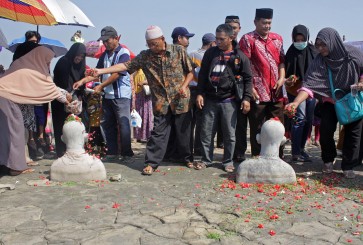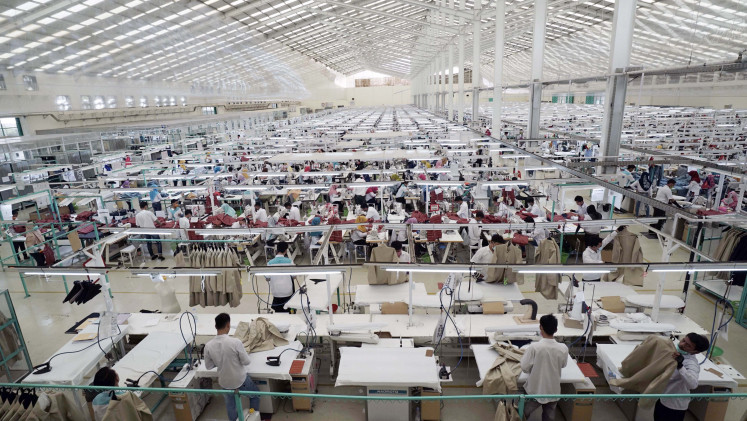'Trashed' documentary and meaningful technology solutions
Every now and then, some defining documentaries get widely circulated that provide hope for a fundamental change in seeing the urgency of our global environmental crisis
Change text size
Gift Premium Articles
to Anyone

E
very now and then, some defining documentaries get widely circulated that provide hope for a fundamental change in seeing the urgency of our global environmental crisis.
And thanks to the capacity of the Internet to spread the word along with better gadgets, as Trashed executive producer and narrator Jeremy Irons says, 'we won't need 20 to 30 years' to see action in starting to deal with this complex problem and make significant impact.
As in Al Gore's Inconvenient Truth, Irons' Trashed documentary is a no-nonsense portrayal of the literally ever-mounting global garbage problem that the world is facing. And what is clear is that we are all part of the problem, but we can be part of the solution, too.
Unlike carbon emissions or pollution that we cannot touch, the sight of ever-mounting trash or garbage is something that is visible and ultimately cannot be ignored.
We do not need to wait for next year's United Nations Framework Convention on Climate Change (UNFCCC) report. The conclusive evidence as conveyed in Trashed is that human-generated waste is already affecting our babies, reproductive organs and, ultimately, the survival of our species.
The film's press conference and premiere, which were held at the Dutch Embassy in Jakarta on Monday, were enlightening in many respects. Most importantly, it was great to see the presence of so many of the country's leading lights, such as Jakarta Governor Joko Widodo, former president Megawati Soekarnoputri and Youth and Sports Minister Roy Suryo, to name but a few. Let us hope we will soon see more concrete action in providing solutions to this complex problem.
However, as many people commented, we could all do our bit ' starting today. Each of us produces around 1.5 kilograms to 3 kg of trash every day, a growing portion of which is inorganic waste. So there are many things that we can do ourselves to drastically reduce our trash volume. The alternative 'business as usual' approach will only result in a drastic and irreversible change to our own health, not to mention an ever-rapid degradation of the landscape of our tropical islands, oceans and globe as a whole.
Although 'electronic waste' (old gadgets, batteries, computers and other 'e-waste', which are entering the waste stream in many countries across the world) was not specifically mentioned in Trashed, Irons did acknowledge the problem during the Q&A session.
I asked if we should to look at and invest in technological alternatives to plastics (such as the paper byproduct, ARBOFORM, and other things like Indonesia's experimental corn-based alternative and other 'plastic-free' solutions).
He agreed and added that technological solutions should be found, supported by appropriate 'carrot and stick' regulations and a change in public behavior.
But first, an awareness about the need for and commitment to urgent action is required to reduce trash and here the Internet, information technology (IT) gadgets, social media sites and more traditional forms of media can help enormously.
As Indonesians, particularly the young, are significant trash generators, they must maximize the use of information and communication technology (ICT) to publicize all relevant facts using all channels ' mainstream, social media and podcasts. For this purpose, it is essential to have broadband.
Indonesia has an opportunity to leapfrog to a low-carbon economy by investing in Internet broadband access. The Meaningful Broadband Congress at the Jakarta Convention Center (JCC) as a side event at
Indonesia's Infrastructure Summit on Nov. 13 aims to assist a new government-approved plan for the massive ramp-up of broadband Internet in the country, while also putting high-speed Internet to 'meaningful use' in the economy, for small and medium enterprises and NGOs, for governmental agencies, for the educational sector and, ultimately, for consumers.
Indeed, with such Internet capacity to spread the word, as Irons says, 'we won't need 20 to 30 years' to see action and effectively start to deal with this complex problem.
The writer is a research associate at the Meaningful Broadband Working Group and adviser for the Foundation for IT Sustainability.









